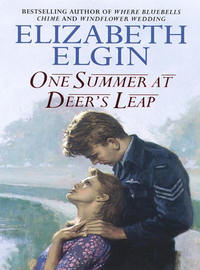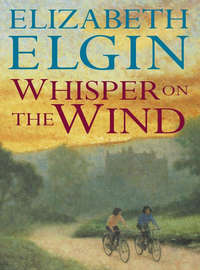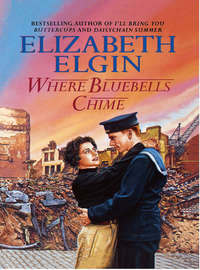
Полная версия
The Willow Pool
But first she would make her way to the city centre and see for herself exactly what the Luftwaffe had done. She’d heard that the city gaol had had a direct hit and twenty prisoners killed in locked cells, and that a match factory had been hit and blazed so brilliantly that it attracted still more bombers to flatten still more streets.
Rumour had it too that no cars were allowed in the city centre; that unidentified dead were laid in rows in makeshift mortuaries and that no one knew what was to be done with them. And where, she wanted to know, did you put the people from the seven thousand homes that had been bombed to the ground?
If she were honest, mind, she’d had no great love for Liverpool; Liverpool had been where she and Ma lived until they could go to the little house in the country. Yet now when it had suffered a terrible blitzkrieg, she pitied it with all her heart; felt in tune with the roistering, bawdy city because she had been a part of its terror. And Liverpool was, if you looked facts straight in the face, the only home she had ever known, dump though it was. In Liverpool lived people like Nell and Tommy, and others ever ready to offer a smile to strangers, or a shoulder to cry on.
What she could not believe was that there had been rioting in the streets and the military called in to put a stop to it. Nor could she believe that looting was rife and the homes of those who fled the bombing had been broken in to by angry mobs.
Yet she was to find when she reached the heart of the city that things were even worse than she had imagined. True, there were soldiers in the streets, but digging in the rubble and setting up a field telephone system, because so many telephone exchanges had been bombed. Of rioters and looters she saw none; only acres of emptiness that once had been streets, with here and there a shop still standing with ‘BUSINESS AS USUAL’, defiantly daubed on its boarded-up windows.
She lifted her head and smiled with pride that she was a part of it; had endured seven nights of bombing and come out of it with her life. She was ready now to get on with that life and do whatever she could to help. Ready, that was, until she turned a corner to where ARP workers and soldiers were digging, and wished she had heeded the cry of the man who told her to go back; to stay away.
But it was too late, and she stood stock-still to gaze at bodies laid almost reverently side by side, some with staring eyes and open mouths as though they had died of suffocation; others with blood-caked, mangled limbs. And all of them covered in the dust of destruction. It matted their hair, their eyes, their clothes.
Yet even as the kindly soldier led her away, she looked back in disbelief, not just at wanton, stinking death, but at the small body of a baby that could almost have been asleep on the pavement were it not for the dust of death that covered it.
‘Away to your home, lassie,’ said the soldier. ‘Away and make yourself a cup of tea.’
‘A baby!’ she gasped as she flung open Nell’s door. ‘A little thing with no one to own it! Just laid there, all mucky on the pavement, as if it meant nothing to nobody!’
The tears came then as the motherly arms folded her close and hushed her and scolded her for going out looking for trouble.
‘I told you, Meg Blundell; said there’d be nothing gained by goin’ into town, but you would go, see it with your own eyes, you said! Not a pretty sight, by all accounts.’
‘It wasn’t, Nell. It wasn’t Liverpool any more. Just streets and streets flattened, and people with lost looks on their faces. And would you believe it – in the middle of all that mess there was that statue with not a mark on it! All that – that shambles, yet Queen Victoria looking down on it all with a right gob on her, as if it wasn’t her Albert’s bluddy lot that done it! The world’s gone mad!’
Her sobs were wild, as if all the bottled-up grief of the past months had burst out and was not to be silenced. Her body shook with anger and loathing for what she had seen. She wanted to run, but had no place to run to; only Tippet’s Yard to come home to. She fished for a handkerchief, dabbing her eyes, blowing her nose noisily. Then she took a deep breath and held it until her head pounded.
‘You finished then?’ Nell said sternly.
‘Yes. An’ I’m sorry if I upset you. I know I’m better off than a lot and I should be saving my tears for that little baby. But I’ll tell you something for nothing, if you’re in the mood to listen. I’m gettin’ out of this place! I’ve had enough. I’m off, Nell!’
‘Oh, ar. And where to, then? Your auntie’s place in the Lake District will it be, or yer posh cousin’s ’ouse in Llandudno?’ Nell asked with a sarcasm she didn’t really mean. ‘Oh, grow up, girl. Tippet’s Yard isn’t exactly the Adelphi, but it wasn’t bombed like Lyra Street. At least we’re sleepin’ in our own beds, and not on the floor of some drill hall. And where is there for the likes of us to go, will you tell me? And who’d pay our fares, even supposin’ the trains and buses was normal?’
‘She’s right,’ said Tommy, who had heard the commotion and come to see what was to do. ‘We sit tight and count our blessings and stick together. And hope them bombers don’t come back again for another seven nights!’
‘Sorry Tommy, Nell. It was just that I couldn’t believe what I saw. And the baby … It was so little, and lonely. What right have they to kill babies?’
‘We send bombers out too,’ Nell said mildly, nodding to Tommy to fill the kettle. ‘Wars are no respecters of innocence.’
‘I’m a selfish little cat, aren’t I?’ Contritely Meg shaped her lips into a smile. ‘And Ma would be glad to be alive, wouldn’t she – bombs and all?’
‘I’m not so sure about that.’ Tommy lit the gas with a plop. ‘Your mother had a hard life. She’s better off where she is, in heaven.’
‘Ma never talked about heaven, nor God. Don’t think she believed in all that, Tommy.’
‘Oh, my word, but she did! Not your religious ’eaven, mind, but if poor Doll’s soul is anywhere it’s at that Candlefold of hers. Her face’d light up when she talked about it,’ Nell said softly. ‘So don’t go wishing her alive, girl. She was a sick woman and she’s happy now. Heaven is where you make it, don’t forget! Now, who’s for a sup of tea, then?’
The May evening was warm, and what they could see of the sky a bright blue, still. They sat on wooden chairs in the little cobbled yard, wondering at the silence; trying not to think of those seven nights past, nor allow themselves to wonder if the blitz would happen again.
‘It’s true, then. He really did come,’ Nell murmured. ‘Was on the nine o’clock news.’ If it was on the wireless, you had to believe it.
‘Hess, you mean? Fishy, if you ask me. Will they shoot him, d’you think?’
‘Hope so.’ Nell gazed longingly at a cigarette, then placed it tenderly back in her pocket. ‘Suppose they’ll lock him in the Tower, though.’
‘I’d lock him in a house in the East End of London,’ Meg offered with narrowed eyes. ‘Then when his lot bomb London, he’ll get a bit of his own back. He must be mad, though, coming here. Maybe Hitler’s sent him to offer peace terms.’
‘Well, we don’t want peace with that lot. And won’t bluddy Hitler be annoyed when he finds out that his deputy was taken prisoner by a ploughman with a pitchfork?’ Nell laughed heartily. ‘Ah, well, it takes all sorts …’
The capture of Rudolf Hess was of no interest to Nell Shaw. Of more importance was where she would find her next five cigarettes and if the butcher – whose shop had survived the bombing – would have off-the-ration sausages for sale tomorrow.
‘I did hear,’ said Tommy, ‘that there’s an office been opened in Scotty Road – a sort of help place for bombed-outs. Seems a lot of folk have lost their identity cards and their ration books – just blown to smithereens. Got nuthin’ but what they stand up in. Mind, I’d have thought they’d have taken things like that with them to the shelter.’
‘Folk only think of finding somewhere safe when that siren goes,’ Nell defended.
‘Mm …’ Meg was thinking about the baby still, and about the cardboard coffins they were putting the dead in – those no one had claimed, that was – and burying them in mass graves. At least Ma had had a decent funeral. It made Meg wonder, since she was almost sure her mother had never been a one for religion, what she would have made of it all, and the vicar who didn’t even know her saying kind things at the graveside. And was heaven where you made it, and hell too? There was a lot of sense in what Nell said, because Meg already knew that hell was a blitzed city and a baby lying on the pavement. This morning, she had looked hell in the face.
‘A penny for them!’ A hand broke Meg’s line of vision. ‘You were miles away, girl. Thinking about Doll, were you?’
‘Yes. And about the baby …’
‘Now see here, Meg Blundell! Isn’t no use gettin’ maudlin’. What’s done is done. Nuthin’ any of us can do about it. And maybe you’d better try to find that place in Scotty Road – ask them where you can sign on, for a start, and if they’ve got any jobs. Did you pay your stamps? They’ll have to give you dole if you did! First thing tomorrow you’ll have to snap out of it and get on with your life, ’cause if you don’t, bluddy Hitler’ll have won, won’t he? Can’t you see that that’s what he wants to do; knock the stuffing out of us so that when he invades we’ll throw up our hands without a fight?’
‘Do you think he’ll come, then?’ Since Nazi Germany had occupied France, it seemed only a matter of time before an invasion fleet set out for England.
‘Nah! He’ll have to get here first! Don’t forget we’ve got the sea all around us, girl, and a navy to protect us. Oh, it was easy for them stormtroopers to walk through Belgium and sneak round the end of the Maginot Line into France, but even Hitler can’t walk on water, don’t forget!’
‘But do you think that if it happened, we’d make a fight of it, like Churchill says? Would we fight on the beaches and in the streets?’
‘I think you should worry about that,’ Tommy said firmly, ‘if it happens. As far as I’m concerned, them Jairmans are taking their time making their minds up. Nearly a year since Dunkirk, don’t forget.’
‘So where’ll he go next?’ Meg persisted. ‘Hitler’s been very quiet lately, you’ve got to admit it. Hasn’t invaded anywhere …’
‘I wouldn’t say quiet exactly,’ Nell sniffed, thinking of the nights of bombing, ‘but I’m inclined to agree with you, girl. Hasn’t taken over anywhere this last year. Mind, there’s precious few countries left for him to grab.’
‘Except ours …’
‘And Sweden and Spain and Switzerland,’ Tommy offered. ‘Mind, them three’s neutral. Maybe it suits him to leave them alone – for diplomatic purposes, like. So that only leaves America and Russia.’
‘America’s too far away,’ Meg reasoned, ‘and Russia’s got a pact with Germany.’
‘Hitler don’t trust Stalin, for all that.’ Nell gave into temptation and placed the cigarette between her lips. ‘But forget about ’im. I’m goin’ to put the kettle on – make us a cup of cocoa. You got any dried milk, Meg?’
Nell Shaw had had enough of war talk, and she was tired. She would, therefore, have a cup of cocoa, her last cigarette, then take herself off to bed. Tomorrow, was another day. Time enough to worry about it when it came.
Meg snuggled into her mattress, pulled the sheet up to her chin, then stared unblinking at the ceiling. She had still not made up the sleep lost during the bombing but she could not forget the baby, wondering where it was now, and if someone had claimed it. But maybe its mother was dead too.
A tear trickled out of the corner of her eye and ran into her ear; a tear for a dead baby, not for herself, because Meg Blundell was alive, and that, in this city, was something to be thankful for. And tomorrow she really would start looking for a job because nobody could live on fresh air, and the money in her purse wasn’t going to last for ever. There was the money in Ma’s bankbook, of course, if things got really bad. It shouldn’t be too difficult to go to the post office, copy the simple, rounded writing of her mother’s signature.
‘Tsk!’ She groped for the matchbox and lit the candle at her bedside, looking at her watch with dismay. Half-past one in the morning and wide awake still!
‘Ma?’ she whispered.
But she heard no answer, nor felt one in her heart. Ma was back at Candlefold where she’d been happy, and was bonny again, with pale blonde curls and a wide smile, and standing in the sunshine beside the pump trough in the stableyard, waiting for Norah Bentley and Gladys Tucker. Or was she bobbing a curtsey as Nanny Boag sailed past with baby and perambulator? That little boy would be going on twenty-four now, and called up into the armed forces; married, perhaps, with a baby of his own.
She wished she could forget babies. Had that German pilot stopped to think, just for one second, what his bombs would do, or had he been as afraid, perhaps, as the people in the city he dropped them on? She hoped fervently he would never know peace of mind again, but she was as sure as she could be that he would sleep soundly when he got back to his aerodrome, thankful he was still alive. And anyway, wars were about killing, weren’t they? Our lot did it too.
The rattling of the letter box awoke her and she stretched and breathed in the acrid smell of a burned-out candle.
Dammit! Nine in the morning and Nell on the doorstep! Meg pulled back the curtains and opened the window to see the postman, holding a parcel.
‘Miss M. M. Blundell, is it?’ he called, squinting up.
‘That’s me! Hang on a minute!’
‘Fewd parcel,’ said the postman laconically. ‘All right for some, innit?’
But Meg only smiled and thought warm thoughts about Kip, who loved her, then read the green label in Kip’s handwriting, declaring the contents to be unsolicited food.
‘Well, then, and who’s the lucky one?’ Nell beamed from the doorway. ‘That young man of yours looks after you all right. Goin’ to see what’s inside, then?’
‘You open it, Nell. I’ll put the kettle on and do a slice of toast. Lovely day, isn’t it?’
‘Glorious. If you didn’t step outside this yard you’d never know there’d been any bombing. Pity the roads are in a mess still. We could’ve gone to Sevvy Park.’
Sefton Park was as near to being the countryside as Nell could want: trees and flowers and wide expanses of grass for sitting on. She’d had many a canoodle there in her courting days.
‘We’ll go there, Nell, just as soon as the trams get back to normal. We’ll take some sarnies and sit in the sun.’ The park was on the posh side of Liverpool, on the outskirts; the bombs wouldn’t have reached that far out. ‘But I’m going to see about finding a job or getting some dole to tide me over. And I’m going to try to get Ma’s money. I – I thought I could sign her name – it wouldn’t be dishonest, would it? When Ma died I didn’t give back her identity card. I could show them that …’
‘Then you shouldn’t have a lot of bother getting it. And it wouldn’t be as if it was hundreds of pounds you’d be askin’ for.’
‘No.’ That five pounds had been a fortune to Ma, though, and saved shilling by shilling. ‘But what has Kip sent?’ Her eyes ranged the array on the tabletop. ‘Ciggies? Think he must have meant them for you, Nell. And you’d better take the mints to Tommy; tell him he’s invited to Sunday tea.’
‘You’re a good girl, Meg Blundell. Give me your ration book. I’ll take it with Tommy’s and try to get half a dozen sausages out of the butcher.’
‘Ask him if he’s got a piece of off-the-ration suet, will you? Then we can have meat pie,’ Meg smiled, holding up a tin of steak.
She felt near contentment as she ate her breakfast. Mind, Nell wouldn’t approve of what she planned to do, but she had thought things over during the wakeful night. A job in a shop, perhaps; go the whole hog and sign up for the Army? There had been ATS girls at the Rialto dance, looking great in their uniforms. Bed and board and all provided, and leave four times a year – when there would be Tippet’s Yard to come back to, and Tommy and Nell.
All very well, but she had decided on neither, because until the Government told her to register for war work she was footloose, could go where she wanted and already she knew where that place was. Approximately, of course. You went to Ormskirk, took the train to Preston, then somewhere between there and a place called Whalley was a dot on the map so small she’d had difficulty finding it. And likely she would have difficulty getting there, an’ all, but she was as sure as she could be it was to Nether Barton she must go; find the house where Ma was now. It wasn’t until she did that she would know what to do with her life.
Candlefold had rarely been out of her thoughts since the night she discovered she had been born there, and now her roots were calling her back – just to take a look at the place and maybe hear Ma’s voice with her heart, telling her she wasn’t to fret and to straighten her back and hold her head high and get on with her life. The only bother, she knew, would be telling Nell, because Nell Shaw was going to take a lot of convincing!
Yet go there she must, because she knew in her heart that Candlefold – or Ma, was it? – had something to tell her.
She sighed, arranged the tins and packets in a straight line on the tabletop, deciding that for Sunday tea they would have steak pie – suet permitting, that was – and tinned fruit salad and tinned cream. And on Sunday, when they had eaten and were less likely to argue, she would tell Nell and Tommy what she intended to do.
Relieved that for the time being at least she had got her life sorted, she picked up Kip’s letter.
Darling Meg,
I wish you were here with me. It isn’t as hot as before but I have spent time on the beach in the sun. This is like a different world. Some things are in short supply, but there is fruit and plenty of tomatoes in the shops – no standing in a queue for two apples – and at the weekend whole families were on the beach with picnics. The girls here are beautiful and brown from the sun, but I haven’t seen one as lovely as you, Meg.
By the time you get this – if it doesn’t go to the bottom – I should be under way again and counting off the days till I see you.
Take care,
Love from Kip
She glanced at the date at the top of the letter, realizing it had been written long before the bombing. Would Kip know about it now, and be worrying about her and Amy? Dear, kind Kip, who thought she was lovely.
She rose to gaze into the mirror. Not lovely at all, Kip Lewis; perhaps pretty in parts – blue eyes that didn’t go with black hair; a good complexion, though pale. And she was slim, she supposed, but so were most people these days, thanks to rationing. And Nell had said she had good legs and should shorten her skirts a bit – but lovely? Not really.
She took the sixpenny airmail letter from the mantel, and pen and ink from the drawer.
Dear, kind Kip,
The parcel arrived safely this morning and you are very popular with the people in Tippet’s Yard, who will be having a luxurious tea on Sunday at number 1.
I saw Amy and the children yesterday, and they are all very well.
She stopped, frowning. Best not mention the bombing; just that they were all right and, anyway, if she did, the Censor’s Office would slice it out and the folded letter card would arrive looking like a paper doily!
Today is lovely and warm and the light nights a blessing. Nell has suggested a picnic in Sefton Park. (She says many thanks for the ciggies, by the way.)
She stopped again, reading what she had written. Not much of a letter to send to a man all those miles from home and planning to buy an engagement ring in Sydney.
I think of you often, Kip, and look forward to seeing you again, and wish you a safe journey home.
Take care, Kip.
All my love,
Meg
All my love. That sounded better than the rest of the letter, and a nice bit to end up with. She wished she could love Kip and want him that way. He was a good, kind man, and anyone with half a brain would jump at the chance to be his girl and wear his ring. And to marry him, and have an allowance every month from the shipping line he sailed for.
But that would not be enough, and she wasn’t able to love Kip as he deserved; not yet, anyway. And she had to love him – or any man she married – with all her heart and soul, and want him that way.
Once, twenty years ago, Ma had wanted a man that way; hadn’t thought of the consequences, only about being in love. And the fact that his name did not appear on her birth certificate was neither here nor there, Meg brooded, because Ma would have been deeply in love that way the night her daughter was conceived.
It was a point in her favour, Meg frowned, that she was really a love child, which sounded better than illegitimate and much, much better than bastard. Who was he, Ma? Why did he leave you? Did he know about me? Would he have married you, if he had?
Meg had already worked out when she’d been conceived. Babies born at the end of August were got round about Christmastime, she’d decided. Or had it been New Year? Had there been holly and ivy and a Christmas tree and dancing and fun? Was her conceiving a happy one?
In which room at Candlefold had she been born, and had Nanny Boag delivered her? And why hadn’t she been called Carol or Holly or Noelle? Why two saints’ names?
Oh, there were so many questions, so much still to discover. And all the answers were at a house called Candlefold Hall, if only she knew how to get there. And whilst she was daydreaming about bonny housemaids and sunny summer days, did the Kenworthy family still live there, or had it been taken by the Government as an Army billet, or a hospital or convalescent home for wounded soldiers.
Candlefold 1916. Garden Party for wounded soldiers, and Ma in a long cotton frock and a pretty straw hat.
Oh, Candlefold, why are you bothering me like this? Or is it you, Ma? Is there something you want me to know, like who my father is? Do you want to tell me you are happy again, and waiting at the pump trough in the cobbled courtyard? And if I stand there, will I hear your voice with my heart, and be glad?
And had you thought, girl, demanded her common sense in Margaret Mary Blundell’s most scathing voice, that the flamin’ pump trough might not be there; that the house, even, might have gone, an’ all?
But if she found the house unchanged, did she march up to the front door and say, ‘Excuse me, missis, but can I sit on yer pump trough for a couple of minutes; have a word with Ma?’
She clucked with annoyance, because what she intended to do was so ridiculous and stupid that Nell would give her the length of her tongue and tell her to grow up and get herself down to the dole office like most folk else with one iota of sense in their heads would do!
Yet it didn’t matter what Nell would say, nor Tommy, because Ma did have something to tell her and Candlefold hadn’t fallen down, nor the Kenworthys left it, or why did she feel so strongly about going there? Why had an old house called to her, all sunlit and shining, and why, ever since she’d opened Ma’s little attaché case, had she felt so curious and excited?
Was she bomb happy? Had the seven fearful nights got to her, and the desolation that had once been a city, and the baby on the pavement? Or was it simpler than that: did she want to get out of this place and had she latched on to Ma’s dreams and made them her excuse?
Only one thing was certain. She would never know until she found a house called Candleford. And Ma.
Three
Getting to Preston had been easier than Meg had ever dared hope. Liverpool city centre was still choked with the debris of shops and offices and warehouses, but once she had skirted streets closed by ‘DANGER. UNEXPLODED BOMB’ signs and taken heed of ‘NO NAKED LIGHTS’ warnings, and tried not to look at piles of rubble under which might still be bodies, she had seen a red bus going to Ormskirk, and any time now, the conductor told her.







